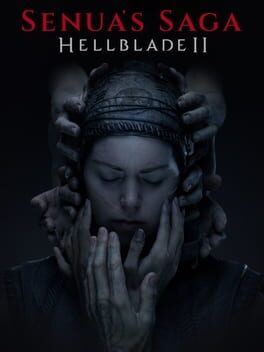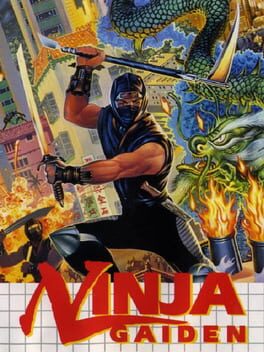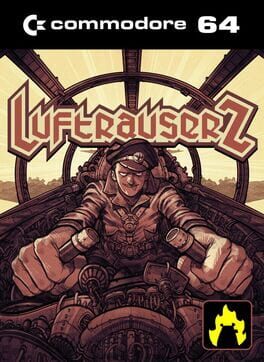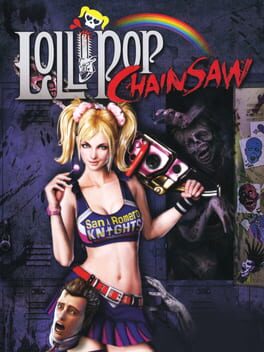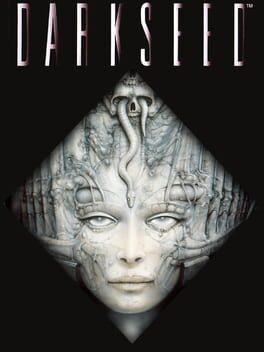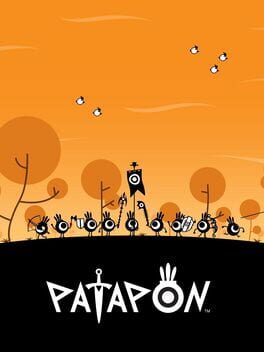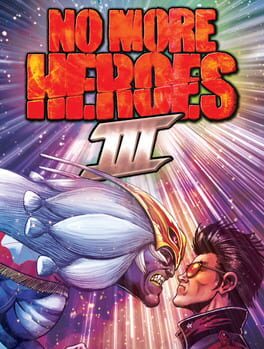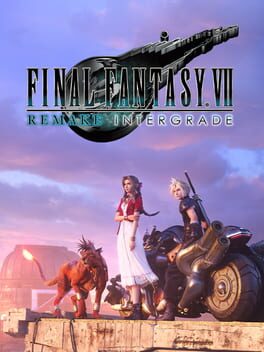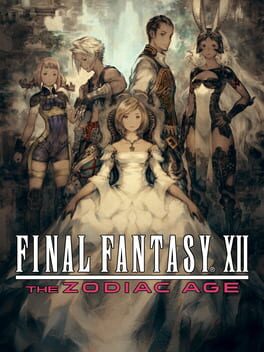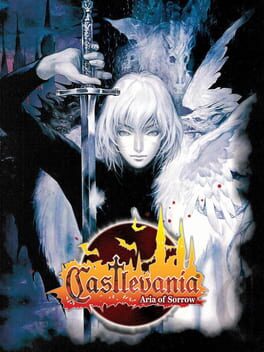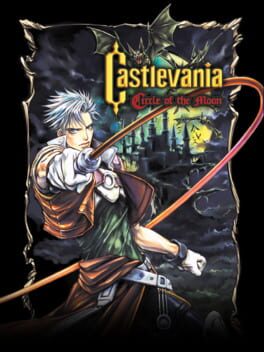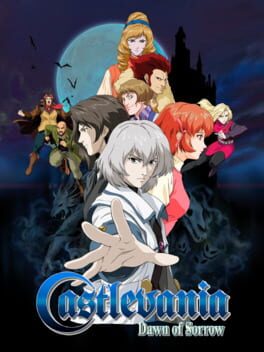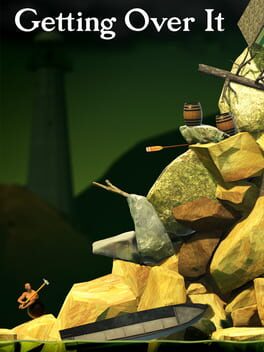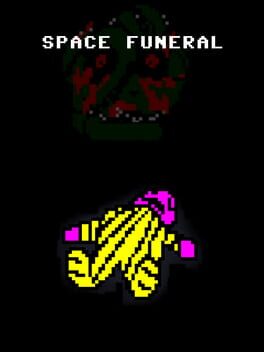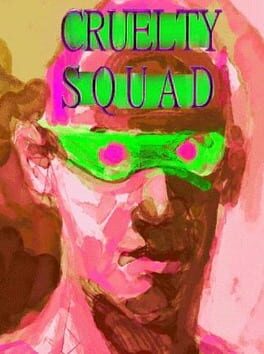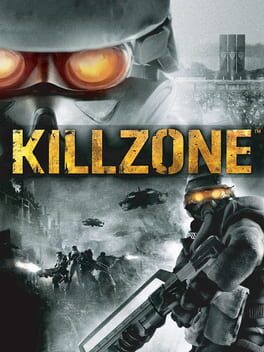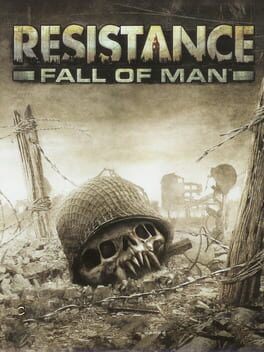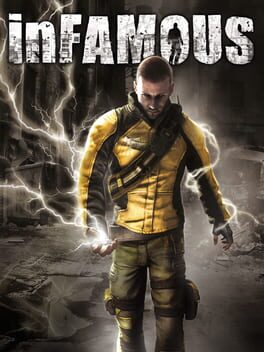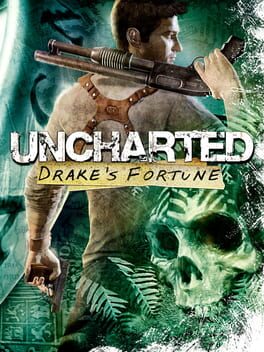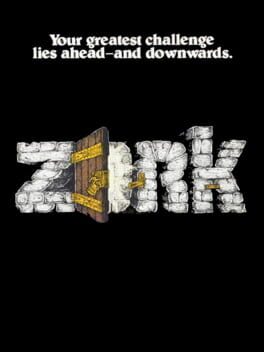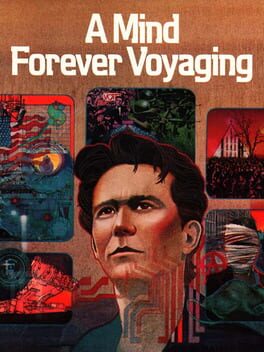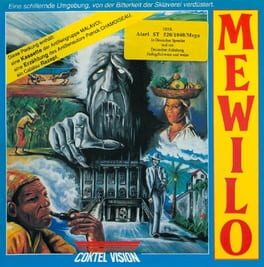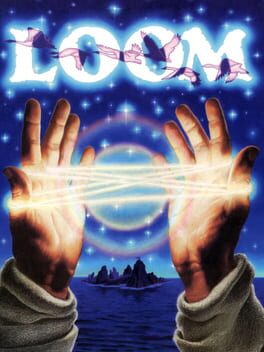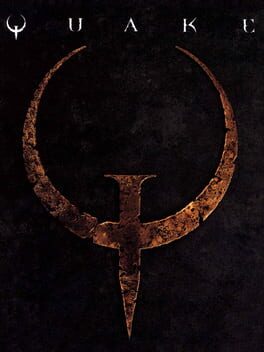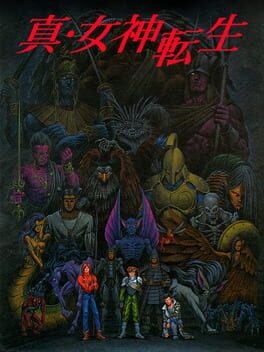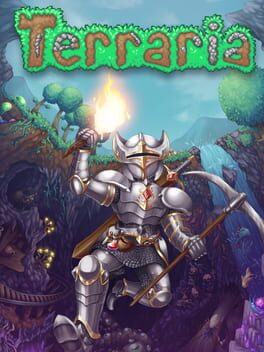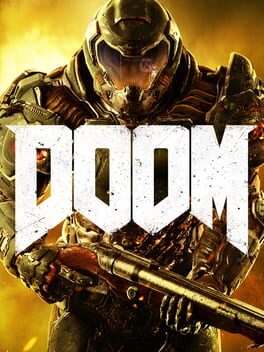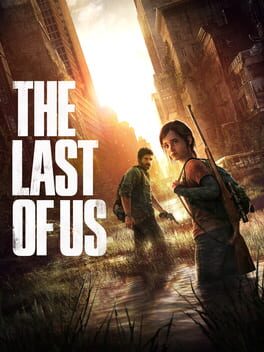89 reviews liked by aquelejoel
Hellblade: Senua Sacrifice and Senua's Saga: Hellblade II when compared together, feel like a give-or-take duology that beautifully bounces off each other in a symphony.
The first game has the better story, thanks to its singular focus on Senua and her psychosis, while the second game comes just close to overtaking Sacrifice as it takes Senua singularity, and gives her a purpose larger than life, an almost shamanistic task of taking down the giants and lead a group of people, which inadvertently takes away the story's focus on psychosis as that plot thread was already resolved in the first game
Gameplay wise, I knew what to expect and got what I was l looking for, a story led interactive adventure game, but as a sequel, 2 makes some sacrifices that are both necessary, but some confusing to distinguish itself from the previous games. The puzzles, for example, are few, longer and simplistic to the point some didn't need to be here, like that hour-long hidden folk trials, and combat, which I admire how raw, visceral and violent it is, feels a bit sloppy when trying to time attacks, read enemy movements and the lack of charge stabs and kicks makes it the more confusing why the simplification when it would've actively contributed to the presentation
Speaking of presentation, this game is nuts. I would confidently call this a digestible spiritual successor to Kane & Lynch 2 Dog Days, as the game employs a ton of post-processing to make it as filmic as possible, like an anamorphic lens, black bars, chromatic aberration, distortion, film grain, it's immense the number of techniques employed for this as well as the character's fidelity, which is industry leading.
Had they not simplified some crucial combat mechanics from 1 and expanded on the puzzles, I feel it could've surpassed the first game
The first game has the better story, thanks to its singular focus on Senua and her psychosis, while the second game comes just close to overtaking Sacrifice as it takes Senua singularity, and gives her a purpose larger than life, an almost shamanistic task of taking down the giants and lead a group of people, which inadvertently takes away the story's focus on psychosis as that plot thread was already resolved in the first game
Gameplay wise, I knew what to expect and got what I was l looking for, a story led interactive adventure game, but as a sequel, 2 makes some sacrifices that are both necessary, but some confusing to distinguish itself from the previous games. The puzzles, for example, are few, longer and simplistic to the point some didn't need to be here, like that hour-long hidden folk trials, and combat, which I admire how raw, visceral and violent it is, feels a bit sloppy when trying to time attacks, read enemy movements and the lack of charge stabs and kicks makes it the more confusing why the simplification when it would've actively contributed to the presentation
Speaking of presentation, this game is nuts. I would confidently call this a digestible spiritual successor to Kane & Lynch 2 Dog Days, as the game employs a ton of post-processing to make it as filmic as possible, like an anamorphic lens, black bars, chromatic aberration, distortion, film grain, it's immense the number of techniques employed for this as well as the character's fidelity, which is industry leading.
Had they not simplified some crucial combat mechanics from 1 and expanded on the puzzles, I feel it could've surpassed the first game
Animal Well
2024
Animal Well
2024
Ninja Gaiden
1992
Jogos de ninja!? Sim, adoramos. Assim adoramos ver filme de ação dos anos 80. Há algo neste tema ninja que leva qualquer marmanjo para trás e sentir nostalgia de algo. É muito comum se lembrar de qualquer filme que passava tanto na Globo quanto na SBT e ainda tenho em mente que não finalizei 3 Ninja Kick Back. Pois bem, desta vez o jogo da quinzena é Ninja Gaiden de Master System... será que é difícil?
Não há muito o que se dizer de um jogo lançado em 1992 e era obrigação de qualquer empresa fazer algo esplendido para o consoles já que Master System é conhecido pelo mais novo falecido processador Z80. Este jogo é tão lindo quanto aos jogos do Ninja Gaiden da Tecmo, já que aqui o jogo foi desenvolvido por outro estúdio e não é feio não. Fizeram um ótimo trabalho aqui.
Diferente de muito jogos de Master System, este jogo não tem um som ferrado. É todo gostosinho de se ouvir e não tem nenhum SFX irritante porque se for presente é bem inaudível já que as músicas das fases maiores que qualquer coisa. Seja onde você ficar travado ou usar o save state, a música sempre será boa.
Cara, a dificuldade deste jogo numa escada de 0 a 10 é tipo 5, pois não há uma dificuldade exarcebada. Você não vai passar raiva jogando este jogo até mesmo usando save state porque os checkpoints são generosos e com os continues infinitos, não irá passar fome. Diferente dos outros jogos da séries, este aqui é bem tranquilo e tem um gráfico de dificuldade bem bostinha. Você não irá sofrer, vai por mim.
Tomei 3 latinhas de Brahma jogando este jogo em apenas 2 horas de jogatina. Farmei algumas mágias já que eu usei aquele patch de correção de 999 que não deixa mais fácil e sim mais tranquilo. Você nem precisa se preocupar com o que está fazendo e ir apenas para frente. Alguns inimigos vão te segurar, mas até aí qual jogo não faz isso né? É bem tranquilo: é um jogo que você desliga a mente e vai pra frente.
É um jogo muito bom e você não vai demorar muito para finalizar, sendo bem rápido e com uma dificuldade aceitável mesmo para os padrões de Ninja Gaiden. Pode jogar tranquilo numa tarde de sábado ou domingo, tomando uma e se divertindo!!! JOGÃO!!!
Não há muito o que se dizer de um jogo lançado em 1992 e era obrigação de qualquer empresa fazer algo esplendido para o consoles já que Master System é conhecido pelo mais novo falecido processador Z80. Este jogo é tão lindo quanto aos jogos do Ninja Gaiden da Tecmo, já que aqui o jogo foi desenvolvido por outro estúdio e não é feio não. Fizeram um ótimo trabalho aqui.
Diferente de muito jogos de Master System, este jogo não tem um som ferrado. É todo gostosinho de se ouvir e não tem nenhum SFX irritante porque se for presente é bem inaudível já que as músicas das fases maiores que qualquer coisa. Seja onde você ficar travado ou usar o save state, a música sempre será boa.
Cara, a dificuldade deste jogo numa escada de 0 a 10 é tipo 5, pois não há uma dificuldade exarcebada. Você não vai passar raiva jogando este jogo até mesmo usando save state porque os checkpoints são generosos e com os continues infinitos, não irá passar fome. Diferente dos outros jogos da séries, este aqui é bem tranquilo e tem um gráfico de dificuldade bem bostinha. Você não irá sofrer, vai por mim.
Tomei 3 latinhas de Brahma jogando este jogo em apenas 2 horas de jogatina. Farmei algumas mágias já que eu usei aquele patch de correção de 999 que não deixa mais fácil e sim mais tranquilo. Você nem precisa se preocupar com o que está fazendo e ir apenas para frente. Alguns inimigos vão te segurar, mas até aí qual jogo não faz isso né? É bem tranquilo: é um jogo que você desliga a mente e vai pra frente.
É um jogo muito bom e você não vai demorar muito para finalizar, sendo bem rápido e com uma dificuldade aceitável mesmo para os padrões de Ninja Gaiden. Pode jogar tranquilo numa tarde de sábado ou domingo, tomando uma e se divertindo!!! JOGÃO!!!
LuftrauserZ
2017
Lollipop Chainsaw
2012
Remains as fun as it's ever been with sometimes funny writing, creative boss encounters and a surprise appearance of Akira Yamaoka on the soundtrack (I keep forgetting he worked at Grasshopper)
If there's one thing I hope RePop addresses is the combat's game feel. The entire system feels like it's constantly fighting between being animation-led or responsive-led and the lack of fluidity it brings between transitions or what have you is painfully felt and more times than 1 it makes some encounters atrocious to strut through
Also, playing this game on RPCS3 in 4K60 is eye-opening, and with patches to remove the vignette and film grain, the image pops up so much more, which makes it baffling why such a colourful game is suppressed by those two
If there's one thing I hope RePop addresses is the combat's game feel. The entire system feels like it's constantly fighting between being animation-led or responsive-led and the lack of fluidity it brings between transitions or what have you is painfully felt and more times than 1 it makes some encounters atrocious to strut through
Also, playing this game on RPCS3 in 4K60 is eye-opening, and with patches to remove the vignette and film grain, the image pops up so much more, which makes it baffling why such a colourful game is suppressed by those two
Dark Seed
1992
The story goes, apocryphically, that a lot of the reason games in the NES era had their difficulty jacked up so high was to try and pad out the runtime — and to make sure the game couldn’t be beaten in any sort of rental period. These things were expensive to create and mass-produce, so why not make sure the audience gets their money’s worth by making sure the process of beating the game takes as long as possible? Early adventure games, in particular, feel like they took that idea and fucking ran with it: not only using its trial and error to make the game longer, but by burying every process within several layers of esotericism, writing the margin for error in invisible ink so it can take several hours before you realize you’ve made the game unwinnable, that (in an era before the internet was super widespread/commercially available) you basically needed to also buy the strategy guide if you actually wanted to beat the game. It’s kind of incredible to see it in motion, honestly, some of the straight-up dickish things done in this vein. Having to set things up several hours in advance so that you’re ready once those chickens come home to roost. Needing to go so far off the beaten track to figure out what path you’re even meant to be going down that most walkthroughs will often skip that step and start with the part where you actually progress with the game. Stuff that comes with very little warning, where, if you don’t have the exact answer at that exact moment, you get a game over, and have to go back to a previous save to get the means to prevent that from happening. That is, if you even know what it was that fucked you over in the first place.
Dark Seed, debut effort from developer/publisher Cyberdreams, is rife with this shit. The moment you start the game — after a quick bathroom break to shower and get rid of your monster headache — you must go down to your study, look at the building plans, then knock on the wall to find your house has a secret room which contains… nothing but a rope. You then must take this rope to the attic, push a chest out of the way to access a balcony, tie that rope around the balcony to then… access your own backyard. Pointless now, but two in-game days later you’ll get arrested and game overed if you attempt to leave your house by the front door. You might think you could just wait until the requisite time to do it, but, however, halfway through the game, you get forcibly arrested and sent to jail. You can get out easily, and keep your items along the way, but about 20~ mins later when you’re sent to jail again you’ll lose every item… except for three items you’re allowed to hide under your pillow the first time you’re jailed. You have to pick three specific items: one because it lets you escape the cell, the other two because they’re items you explicitly need to use both before and after you go to jail. If you don’t bring any one of these three items, you get softlocked. If something you still need later gets taken away from you during that moment, you don’t get it back, you get softlocked when you suddenly need it. And you won’t know messed up until it comes time for the reaper to collect. It’s genuinely kinda insidious. You could just wait to pick up that rope until after your adventures in jail, but you do have to go through that room to arbitrarily affect something else later on in the game, and how are you meant to know that ahead of time?
Oh, by the way, the game runs on real-time, a-la a Dead Rising or a Majora’s Mask. You wake up in the morning, and if you’re in the wrong place by bedtime, you fall asleep on the spot and get a game over. You’ve got three days to beat the game. You get to check the time by checking your watch, but, oops, that gets taken away when you go to jail. You will have to meet certain appointments by being in certain places at certain times, lest you miss it, and by doing so miss the related item, and by doing so inevitably resulting in a softlock. Going in, hearing about it, I was like "oh, so I have a set amount of time to beat the game? I hope it shows a bit of mercy about that." As it turns out, that was the least of my problems.
Which, by the way, one last puzzle I just have to talk about: on the second day, you encounter a monster on a bridge you need to cross. The only way to get him out of the way is to throw a stick off the bridge, as — much like a dog — this will cause him to rush for the stick, leaping off the bridge into the abyss. How do you get said stick, by the way? Well, on the first day, you have to buy some scotch at the store, which will then prompt your neighbour to enter the store, giving you his business card and inviting you over to his house tomorrow at six PM. When you make the appointment (which, by the way, if you assume he’ll meet you in your front yard, as opposed to your backyard? he doesn’t come, softlock) you’ll find that his idea of entertainment is making you watch him play fetch with his dog over and over again. This’ll repeat endlessly until you give him the scotch, after which he’ll down the whole bottle in one go and go to bed, leaving you free to grab the one thing (or, well, two: you also need his business card to avoid a softlock) you needed out of all of this. And then you have to do a bunch of shit right after this: getting arrested again, getting out of jail, doing a bunch of things afterwards all while the threat of Mike conking out for the day looms over your head. Legitimately the whole game is just a matter of hitting softlocks, trying to figure out what exactly caused said softlock, then keeping that in your memory bank as you run up against all the other softlocks. Which, admittedly, is a bit typical for the era, but at least its contemporaries are a little less all about that.
And usually, other adventure games from this era have something going on narratively which makes a lot of the… walkthrough-heavy gameplay worth it. Dark Seed... is a bit more give and take. There’s a non-zero amount here that I’m down with: I’m into how generally sparse and empty the areas and atmosphere are, and I also like the general horror concept of the Light World/Dark World — and how, physically, the latter counterparts the former, invoking a little bit of a guessing game as to what’s supposed to be what. I love the H.R Giger artwork, how well it characterizes the Dark World as this unnatural, abberative place that’s almost human yet at the same time absolutely not, the ways this influence seeps and infects parts of the comparatively normal Light World and in general how unsettling it feels to have it all around you: even beyond the time limit, the vibes were so off that whenever I was in the dark world I wanted to speed through what I was doing and get out as soon as possible. Other than that… there doesn’t feel like there’s much here, at least storywise. I like the idea of moving into a seemingly haunted house, discovering notes left by the previous owner and trying to find out what happened to him before it happens to you… but in practice it’s rather undone by the adventure game logic and how much of an idiot you come off as: having bought a completely dilapidated home, with broken windows, drafts in every room, a kitchen you can’t even use... yet is totally surprised at this being the case, apparently never even looking at said house before buying it. He expresses more of a reaction at finding the garage rather messy than he does at going through his living room mirror and entering a H.R Giger nightmare dimension. Barely anything about him is expounded in game — why he’s moved in, what he even does for a living, who he even is besides the fact that the game’s plot is happening to him. Most of his descriptions of what’s happening around him take me out of the experience rather than immerse me further in it, and for a game that’s as heavy on setting a tone, story-wise, as Dark Seed, that’s not particularly amazing. I feel like this game loosely… min-maxed a little, with its style and substance. While it makes good on its promise to let you play around in a H.R Giger artscape, what surrounds this is rather little, and in the end mostly feels rather lacking.
Which, among other problems, ultimately results in Dark Seed... not quite feeling up to par. On the art design side, it’s by and large well done. On most of its other sides, it struggles: gameplay wise it’s an experience in trying to find the one sequence of events that doesn’t end with a softlock/game over, and narratively there isn’t nearly enough there to make up for what you need to do to progress through it. While noteworthy in the context of Cyberdreams’ short stint — this not being their final attempt to bring the work of another artist into the medium of video games — in the broader context of 90s adventure games, Dark Seed... isn’t quite able to compete with some of its counterparts. 3/10.
Dark Seed, debut effort from developer/publisher Cyberdreams, is rife with this shit. The moment you start the game — after a quick bathroom break to shower and get rid of your monster headache — you must go down to your study, look at the building plans, then knock on the wall to find your house has a secret room which contains… nothing but a rope. You then must take this rope to the attic, push a chest out of the way to access a balcony, tie that rope around the balcony to then… access your own backyard. Pointless now, but two in-game days later you’ll get arrested and game overed if you attempt to leave your house by the front door. You might think you could just wait until the requisite time to do it, but, however, halfway through the game, you get forcibly arrested and sent to jail. You can get out easily, and keep your items along the way, but about 20~ mins later when you’re sent to jail again you’ll lose every item… except for three items you’re allowed to hide under your pillow the first time you’re jailed. You have to pick three specific items: one because it lets you escape the cell, the other two because they’re items you explicitly need to use both before and after you go to jail. If you don’t bring any one of these three items, you get softlocked. If something you still need later gets taken away from you during that moment, you don’t get it back, you get softlocked when you suddenly need it. And you won’t know messed up until it comes time for the reaper to collect. It’s genuinely kinda insidious. You could just wait to pick up that rope until after your adventures in jail, but you do have to go through that room to arbitrarily affect something else later on in the game, and how are you meant to know that ahead of time?
Oh, by the way, the game runs on real-time, a-la a Dead Rising or a Majora’s Mask. You wake up in the morning, and if you’re in the wrong place by bedtime, you fall asleep on the spot and get a game over. You’ve got three days to beat the game. You get to check the time by checking your watch, but, oops, that gets taken away when you go to jail. You will have to meet certain appointments by being in certain places at certain times, lest you miss it, and by doing so miss the related item, and by doing so inevitably resulting in a softlock. Going in, hearing about it, I was like "oh, so I have a set amount of time to beat the game? I hope it shows a bit of mercy about that." As it turns out, that was the least of my problems.
Which, by the way, one last puzzle I just have to talk about: on the second day, you encounter a monster on a bridge you need to cross. The only way to get him out of the way is to throw a stick off the bridge, as — much like a dog — this will cause him to rush for the stick, leaping off the bridge into the abyss. How do you get said stick, by the way? Well, on the first day, you have to buy some scotch at the store, which will then prompt your neighbour to enter the store, giving you his business card and inviting you over to his house tomorrow at six PM. When you make the appointment (which, by the way, if you assume he’ll meet you in your front yard, as opposed to your backyard? he doesn’t come, softlock) you’ll find that his idea of entertainment is making you watch him play fetch with his dog over and over again. This’ll repeat endlessly until you give him the scotch, after which he’ll down the whole bottle in one go and go to bed, leaving you free to grab the one thing (or, well, two: you also need his business card to avoid a softlock) you needed out of all of this. And then you have to do a bunch of shit right after this: getting arrested again, getting out of jail, doing a bunch of things afterwards all while the threat of Mike conking out for the day looms over your head. Legitimately the whole game is just a matter of hitting softlocks, trying to figure out what exactly caused said softlock, then keeping that in your memory bank as you run up against all the other softlocks. Which, admittedly, is a bit typical for the era, but at least its contemporaries are a little less all about that.
And usually, other adventure games from this era have something going on narratively which makes a lot of the… walkthrough-heavy gameplay worth it. Dark Seed... is a bit more give and take. There’s a non-zero amount here that I’m down with: I’m into how generally sparse and empty the areas and atmosphere are, and I also like the general horror concept of the Light World/Dark World — and how, physically, the latter counterparts the former, invoking a little bit of a guessing game as to what’s supposed to be what. I love the H.R Giger artwork, how well it characterizes the Dark World as this unnatural, abberative place that’s almost human yet at the same time absolutely not, the ways this influence seeps and infects parts of the comparatively normal Light World and in general how unsettling it feels to have it all around you: even beyond the time limit, the vibes were so off that whenever I was in the dark world I wanted to speed through what I was doing and get out as soon as possible. Other than that… there doesn’t feel like there’s much here, at least storywise. I like the idea of moving into a seemingly haunted house, discovering notes left by the previous owner and trying to find out what happened to him before it happens to you… but in practice it’s rather undone by the adventure game logic and how much of an idiot you come off as: having bought a completely dilapidated home, with broken windows, drafts in every room, a kitchen you can’t even use... yet is totally surprised at this being the case, apparently never even looking at said house before buying it. He expresses more of a reaction at finding the garage rather messy than he does at going through his living room mirror and entering a H.R Giger nightmare dimension. Barely anything about him is expounded in game — why he’s moved in, what he even does for a living, who he even is besides the fact that the game’s plot is happening to him. Most of his descriptions of what’s happening around him take me out of the experience rather than immerse me further in it, and for a game that’s as heavy on setting a tone, story-wise, as Dark Seed, that’s not particularly amazing. I feel like this game loosely… min-maxed a little, with its style and substance. While it makes good on its promise to let you play around in a H.R Giger artscape, what surrounds this is rather little, and in the end mostly feels rather lacking.
Which, among other problems, ultimately results in Dark Seed... not quite feeling up to par. On the art design side, it’s by and large well done. On most of its other sides, it struggles: gameplay wise it’s an experience in trying to find the one sequence of events that doesn’t end with a softlock/game over, and narratively there isn’t nearly enough there to make up for what you need to do to progress through it. While noteworthy in the context of Cyberdreams’ short stint — this not being their final attempt to bring the work of another artist into the medium of video games — in the broader context of 90s adventure games, Dark Seed... isn’t quite able to compete with some of its counterparts. 3/10.
Indika
2024
Indika is a very short (~4hrs) walking game filled with puzzles and thought-provoking dialogue. Oh, the brilliant voice acting in this game... I loved the emotions that the 'narrator' put into his work. The ending leaves you hanging with questions in your mind. There are many scenes where you can't get what's happening because it's confusing or because it happens too fast.
I also want to state that I dissected the game and they animated every scene; characters are moving even when you don't see them in cutscenes or in the game. And the demon is also a part of some cutscenes, but you can't see it. They put real effort into this game. It's sad that it was short.
The downsides were pretty much the optimization and some less-polished parts of the game.
I also want to state that I dissected the game and they animated every scene; characters are moving even when you don't see them in cutscenes or in the game. And the demon is also a part of some cutscenes, but you can't see it. They put real effort into this game. It's sad that it was short.
The downsides were pretty much the optimization and some less-polished parts of the game.
Patapon
2007
Estava procurando algo de PSP para jogar já que ele era o console da vez e acabei tendo uma vontade bacana de jogar algo de ritmo. Primeiro baixei Rock Band Unplugged e percebi que a resposta do jogo tinha um delay que eu não me adaptei e por fim me lembrei de Patapon que disse que demoraria mais ou menos umas 5 ou 6 horas de jogo... ME ENGANEI!
Não preciso entrar em muito detalhe gráfico deste jogo porque é inexistente e ele é muito simplório para a proposta dele. Sem preocupações nenhuma em relação a isso porque não é aqui que o jogo brilha, logo tudo que você vê é simples e nada irá te espantar graficamente.
Já no quesito BARULHO ele irá brilhar como diamante. Trata-se de um jogo de ritmo e tudo que você fizer você ouvir PATA, PON, DON ou CHAKA, uma sequência de quatro batidas fará com que seus soldados avance, ataque ou se defenda além de outros combos, a parte mais legal é que para você dar continuidade nos combos, tem que esperar os soldados pararem de falar a sequência que você ordenou, ou seja, você vai ouvir muito PON PON PATA PON!!!!!
NÃO É UM JOGO DIFÍCIL. Patapon brilha por ser um jogo simples, mas em algumas partes você irá ficar travado até que entenda completamente o que está fazendo. É o típico jogo que você precisa jogar o suficiente para compreender melhor as coisas e Patapon 1 provavelmente foi uma boa introdução aos jogos seguintes e estarei calejado.
A diversão fala por si só e você presenciará uma ótima evolução, onde o jogo escala muito bem e te trava legal. Você pensará que está próximo do vim a todo instante e nada irá mudar o fato que você irá avançar a qualquer momento, porém o jogo te trava da pior maneira fazendo com que você farme alguns itens e crie novas unidades. Duas missões do jogo farão você chorar sangue e elas não são nem a penúltima e nem a última...
É um jogo muito legal levando em consideração que ele é simples na sua proposta. Você é praticamente o general de 18 Patapons gladiando com outro exército desconhecido e tudo que você deve fazer é apertar quatro botões na ordem certa para que entre em ecstase total. Toda vez que eles entram em "FEVER", seus Patapons irão atacar mais rápido. É um jogo muito bacana e super recomendo!
Não preciso entrar em muito detalhe gráfico deste jogo porque é inexistente e ele é muito simplório para a proposta dele. Sem preocupações nenhuma em relação a isso porque não é aqui que o jogo brilha, logo tudo que você vê é simples e nada irá te espantar graficamente.
Já no quesito BARULHO ele irá brilhar como diamante. Trata-se de um jogo de ritmo e tudo que você fizer você ouvir PATA, PON, DON ou CHAKA, uma sequência de quatro batidas fará com que seus soldados avance, ataque ou se defenda além de outros combos, a parte mais legal é que para você dar continuidade nos combos, tem que esperar os soldados pararem de falar a sequência que você ordenou, ou seja, você vai ouvir muito PON PON PATA PON!!!!!
NÃO É UM JOGO DIFÍCIL. Patapon brilha por ser um jogo simples, mas em algumas partes você irá ficar travado até que entenda completamente o que está fazendo. É o típico jogo que você precisa jogar o suficiente para compreender melhor as coisas e Patapon 1 provavelmente foi uma boa introdução aos jogos seguintes e estarei calejado.
A diversão fala por si só e você presenciará uma ótima evolução, onde o jogo escala muito bem e te trava legal. Você pensará que está próximo do vim a todo instante e nada irá mudar o fato que você irá avançar a qualquer momento, porém o jogo te trava da pior maneira fazendo com que você farme alguns itens e crie novas unidades. Duas missões do jogo farão você chorar sangue e elas não são nem a penúltima e nem a última...
É um jogo muito legal levando em consideração que ele é simples na sua proposta. Você é praticamente o general de 18 Patapons gladiando com outro exército desconhecido e tudo que você deve fazer é apertar quatro botões na ordem certa para que entre em ecstase total. Toda vez que eles entram em "FEVER", seus Patapons irão atacar mais rápido. É um jogo muito bacana e super recomendo!
Alan Wake
2010
I’ve never watched Twin Peaks. Not for any particular reason, mind you — I’m bad at watching episodic things and there sure are a lot of them out there — though, given just how many things it’s influenced, perhaps I should get around to it. If, in part, so I can see just how much it influences Alan Wake. It’s not like the game is lost to me just because I didn’t do the required reading — it’s not solely beholden on its references, and even if it was it still draws from other things (like Stephen King, House of Leaves, The Twilight Zone, etc.) that are far more in my wheelhouse — but it does feel like I’m missing a piece of the puzzle, knowing that it’s an influence yet not knowing how it impacts the work in question. Is it merely how the game is set in a small town with a dark secret? Is it the cast of offbeat, often kooky, often exaggerated townspeople? Is it the way the game often calls its framing into account: how it frequently calls into question whether the events depicted are real, or representative of something else entirely? I can guess, but I can only guess — I don’t even know whether that last one is something Twin Peaks even does. I suppose it doesn’t super matter, but, like, usually when I go through something I wanna learn alllllllll about it. And in the case of something like Alan Wake — where it’s operating on multiple different narrative layers, where it’s in some ways actively seeking analysis and interpretation from the audience — I liked it enough to feel like I should maybe do my homework. At least before I delve into the series further.
I’ll start with the easiest thing to talk about, if, mainly, for the sake of getting a foothold: I wasn’t expecting this to be as combat-heavy as it was. I knew there was combat, of course — that the game carried a balance between walking-sim-esque segments where you explored the town/chatted with the inhabitants vs. pretty direct gameplay segments where you fought against The Darkness — but I didn’t think, going in, that the ratio would veer so heavily towards the latter. It’s fun, though! It’s certainly much more action-oriented than survival horror — much like a Resident Evil 4, even down to the way your flashlight functions as a laser pointer for your weapons — yet sticks the landing much more than a non-zero amount of its contemporaries do. What I think sells it is its simplicity. Near every encounter comes down to shining some sort of light on them to remove their defences before using some sort of weapon to kill them dead. You don’t even need to aim for the head — bodyshots do the same damage, it’s just mostly a matter of getting them weak in the first place, making sure you have enough ammo on hand, then letting rip. There are remarkably few enemy types (you have your normal guy, your tough guy, your fast guy, your chainsaw guy, but nothing much more than that) — the diversity primarily lies in the type of encounter: are you getting intercepted from point A to point B? Do you have to battle your way through the hoard? Do you have to hold out against the horde? There are a lot of different situations you find yourself in, and through that a lot of situational tools that make each encounter feel unique, from your environment, to the things around you, to the tools you have with you.
Which, speaking of? By and large? Fun to use! Your pistol is shockingly capable: it’s accurate, it has a fun kick to it, it kills enemies in three hits, but if you don’t have the time or the ammo, you can instead use the shotgun or hunting rifle to obliterate the enemy where they stand. If that’s not enough, if you’re in the middle of being overwhelmed… man I love love love how the game just gives you its equivalent of the rocket launcher. And lets you choose how to manage its resources! Do you choose to use it now or later? If you do it now, do you know if you’re going to get more ammo for it later? If you don’t use it now, do you know if what’s down the road is even worth using it later? Of course, you can bypass all these problems by just finding enough treasure chests to make sure you have ammo forever, which…
Leads me to another thing I love: how much the game rewards exploration. The environments you explore are huge, and oftentimes have much more than the player ever has to cover. You can keep going down the path you’re meant to, and the game’s compass (once you notice it) does a good job at delineating what’s “the path” and what’s comparatively more optional, but should you want to look around, you’re rewarded in a variety of ways. If you want a little more extra story content, you can find radios lying around, pages you can read, even little Twilight Zone knockoff TV episodes the game allows you to watch in full. If you want gameplay advantages for going the extra mile, the chests/lootboxes give you more flare gun ammo and flashbangs than you’re ever going to need - and often give you one of the shotgun/hunting rifle before the level would otherwise let you have it. And if you just like exploring for exploring’s sake, you can sate Alan Wake’s addiction to coffee by finding it in the most unlikely of places. The game lets you go above and beyond, as well. Near the beginning, you’re at the bottom of a chasm, a rope bridge across from the cabin you’ve been heading to. You can go across like the game directs you to… or you can instead climb all the way back up the cliff… just to get a coffee thermos. You never have to go up there, and you never get the chance to go up there again. The game, in general, really encourages you to go off the beaten path - offering multiple incentives to entice you to do so, but not only that, the game and the level design lets you go to so many nooks, so many side routes, so many places you never otherwise need to go just to facilitate all these collectables. The world is way bigger than it has to be. To some extent, that’s commendable.
And it’s so fascinating how much focus there is on how it plays, given, ostensibly, that it's a game that’s… primarily all about its story. Perhaps it’s a remnant of when Alan Wake was initially meant to be an open-world game with a day/night cycle — much like, of all things, Deadly Premonition — though this then makes the result… feel somewhat imbalanced, where often it feels like you’re going through looooong gameplay segments and the narrative is being left by the wayside. Not to say the latter isn’t effective, though! As… little as it feels like we spend our time in the town, I liked the glimpses of it that we got! Specifically I loved a lot of the bit characters/NPCs. They lean a little off-beat, a little eccentric, but yet never so much that they don’t feel like real people — more in that sense of, like, that one person from your hometown everybody knows who's a liiiiiiitle bit off their rocker. They’re cute, they’re fun, and I like how they turn Alan into a straight man for whatever antics they force upon him — waitress Rose's obsession with him immediately blowing his cover the moment he enters town, or FBI Hemingway's referring to him solely by other American writers. There’s other little things I like too: the Twilight Zone parodies you find on TVs around the place are fairly on point (and made me realize just how much it kind of is a more adult Goosebumps episode lmao), and the radio shows do a lot to let the world around you feel lived in, and let the writing seep in even during sections where you’re just traversing from one place to another. The manuscript pages are fun for this too: sometimes they recap what just happened, sometimes they tell you what’s about to happen, sometimes they let you know what’s happening beyond your immediate scope, and sometimes they’re just really cute bits of narrative, like the one where Alan picks up a page about him picking up a page and it enters a recursion loop. Every person you talk to, every sign you walk past, every little thing around you helps build up the world around you. To some extent this game could be a case study in how much the micro-level stuff matters in building up a greater picture.
On a macro level — the overarching narrative — it’s… certainly ambitious, but ultimately I reckon sticks the landing. The game draws from pulp novels: not just from the novels themselves, but also how the personal lives of the authors would impact their work — how a lot of these novels had writers/some-form-of-self-insert as the main character, Stephen King not even remembering writing Cujo because he was on so much coke at the time, etc. It’s metatextual, as much a story about itself, and the writing process, as much as it is about a story about Alan Wake fighting against The Taken. The in-universe manuscript the plot of the game is forced to follow is as much of a first draft as anything written, in, say, NaNoWriMo, and the game has so much fun with that: plot holes, kibble, deux ex machinae are present yet accounted for. The story will often turn on a dime, often into stock plots or cop-out endings, much in the way someone would if they’re writing to get words out with no idea of where they’re actually going. Characters or things appear, are professed as important, then will drop out of the plot entirely the moment their scene ends. Even some of the kooky characters will make sense from that lens — an author having to write something fast rather than write it well, relying on cliches that seem much less true to life once those characters start walking and talking in a 3D space. I also enjoy how much the writer makes his way into the work. I’m… not necessarily familiar with Sam Lake’s works, nor do I know much of Remedy as a whole, but I like what I see: the way Alan’s attempt at writing something other than a noir thriller results in a total nightmare of a creation process, how the game stops at a halt so that the in-universe version of a band whose members Sam Lake is friends with can play a few of their songs. To some extent, every work of writing has a bit of the author in it — their experiences, their way of thinking, the specific things they’re a fan of — and often by going through these works one gets to learn about the one who created it along the way. Metatext (or, rather, metafiction) often brings this relationship to the forefront through its continual self-analysis, and Alan Wake, narratively, shines at its brightest on this front, presenting a story that is as much about the process of writing as it is about its literal events, and in turn letting us see just a little about the mind behind it.
There’s… a couple things that bring this game down, mostly on the gameplay end. The game’s use of vehicles leaves… something to be desired: they’re often required for traversal/combat within certain sections, yet trying to use them for their intended purpose is oftentimes clunky, accidentally getting the car stuck on a surface when trying to U-turn it in the direction of the enemies, accidentally drifting it off a cliff trying to make a simple turn. Not even going into how easily it is for the camera to make you motion sick going into certain cars. While I do know that survival horror isn’t meant to be ‘fun’ by definition, a lot of the sections where the game takes away your items I felt were rather the lowlight, often feeling as if they were total crapshoots as to whether I could run through before I got wombo combo’d to death. Some levels — again, perhaps, because of the game’s initial premise as open world — feel rather too long, and often seem to be there to fill time, more than anything. The final level, in particular, has almost nothing story-wise between beginning and end, and while you can pick up pages/listen to Alan’s thoughts the plot doesn’t actually progress until you’ve reached the final section, leaving like, two hours of combat for combat’s sake in-between. I guess it’s a good thing they were able to use all those assets from when it was originally open world? It just… maybe could’ve benefited from being a little more streamlined. Or at least, in the final level’s case, having a bit more between A and B.
As a whole, though, that doesn’t fully detract from near everything this game has going for it. From how well the gameplay does the action horror formula — doing a lot from what little it has, and just from how much the game world encourages and rewards random exploration — to how well the story functions both as a metafiction and as a narrative in its own right, to even the most minor of things: I legit did the Leo pointing meme when I heard, of all Nick Cave songs, Up Jumped the Devil playing on a radio in the woods. It’s not quite a tour de force, and it was much more of a cult classic than a blockbuster when it released (given it released right next to Red Dead Redemption), but… to an extent, that feels appropriate. Something that goes in as many different directions as this does I think works best as an unsung darling. Besides, Twin Peaks, as beloved as it was, didn’t do too well in the ratings either.
…I think. Don’t quote me on that.
(8/10.)
I’ll start with the easiest thing to talk about, if, mainly, for the sake of getting a foothold: I wasn’t expecting this to be as combat-heavy as it was. I knew there was combat, of course — that the game carried a balance between walking-sim-esque segments where you explored the town/chatted with the inhabitants vs. pretty direct gameplay segments where you fought against The Darkness — but I didn’t think, going in, that the ratio would veer so heavily towards the latter. It’s fun, though! It’s certainly much more action-oriented than survival horror — much like a Resident Evil 4, even down to the way your flashlight functions as a laser pointer for your weapons — yet sticks the landing much more than a non-zero amount of its contemporaries do. What I think sells it is its simplicity. Near every encounter comes down to shining some sort of light on them to remove their defences before using some sort of weapon to kill them dead. You don’t even need to aim for the head — bodyshots do the same damage, it’s just mostly a matter of getting them weak in the first place, making sure you have enough ammo on hand, then letting rip. There are remarkably few enemy types (you have your normal guy, your tough guy, your fast guy, your chainsaw guy, but nothing much more than that) — the diversity primarily lies in the type of encounter: are you getting intercepted from point A to point B? Do you have to battle your way through the hoard? Do you have to hold out against the horde? There are a lot of different situations you find yourself in, and through that a lot of situational tools that make each encounter feel unique, from your environment, to the things around you, to the tools you have with you.
Which, speaking of? By and large? Fun to use! Your pistol is shockingly capable: it’s accurate, it has a fun kick to it, it kills enemies in three hits, but if you don’t have the time or the ammo, you can instead use the shotgun or hunting rifle to obliterate the enemy where they stand. If that’s not enough, if you’re in the middle of being overwhelmed… man I love love love how the game just gives you its equivalent of the rocket launcher. And lets you choose how to manage its resources! Do you choose to use it now or later? If you do it now, do you know if you’re going to get more ammo for it later? If you don’t use it now, do you know if what’s down the road is even worth using it later? Of course, you can bypass all these problems by just finding enough treasure chests to make sure you have ammo forever, which…
Leads me to another thing I love: how much the game rewards exploration. The environments you explore are huge, and oftentimes have much more than the player ever has to cover. You can keep going down the path you’re meant to, and the game’s compass (once you notice it) does a good job at delineating what’s “the path” and what’s comparatively more optional, but should you want to look around, you’re rewarded in a variety of ways. If you want a little more extra story content, you can find radios lying around, pages you can read, even little Twilight Zone knockoff TV episodes the game allows you to watch in full. If you want gameplay advantages for going the extra mile, the chests/lootboxes give you more flare gun ammo and flashbangs than you’re ever going to need - and often give you one of the shotgun/hunting rifle before the level would otherwise let you have it. And if you just like exploring for exploring’s sake, you can sate Alan Wake’s addiction to coffee by finding it in the most unlikely of places. The game lets you go above and beyond, as well. Near the beginning, you’re at the bottom of a chasm, a rope bridge across from the cabin you’ve been heading to. You can go across like the game directs you to… or you can instead climb all the way back up the cliff… just to get a coffee thermos. You never have to go up there, and you never get the chance to go up there again. The game, in general, really encourages you to go off the beaten path - offering multiple incentives to entice you to do so, but not only that, the game and the level design lets you go to so many nooks, so many side routes, so many places you never otherwise need to go just to facilitate all these collectables. The world is way bigger than it has to be. To some extent, that’s commendable.
And it’s so fascinating how much focus there is on how it plays, given, ostensibly, that it's a game that’s… primarily all about its story. Perhaps it’s a remnant of when Alan Wake was initially meant to be an open-world game with a day/night cycle — much like, of all things, Deadly Premonition — though this then makes the result… feel somewhat imbalanced, where often it feels like you’re going through looooong gameplay segments and the narrative is being left by the wayside. Not to say the latter isn’t effective, though! As… little as it feels like we spend our time in the town, I liked the glimpses of it that we got! Specifically I loved a lot of the bit characters/NPCs. They lean a little off-beat, a little eccentric, but yet never so much that they don’t feel like real people — more in that sense of, like, that one person from your hometown everybody knows who's a liiiiiiitle bit off their rocker. They’re cute, they’re fun, and I like how they turn Alan into a straight man for whatever antics they force upon him — waitress Rose's obsession with him immediately blowing his cover the moment he enters town, or FBI Hemingway's referring to him solely by other American writers. There’s other little things I like too: the Twilight Zone parodies you find on TVs around the place are fairly on point (and made me realize just how much it kind of is a more adult Goosebumps episode lmao), and the radio shows do a lot to let the world around you feel lived in, and let the writing seep in even during sections where you’re just traversing from one place to another. The manuscript pages are fun for this too: sometimes they recap what just happened, sometimes they tell you what’s about to happen, sometimes they let you know what’s happening beyond your immediate scope, and sometimes they’re just really cute bits of narrative, like the one where Alan picks up a page about him picking up a page and it enters a recursion loop. Every person you talk to, every sign you walk past, every little thing around you helps build up the world around you. To some extent this game could be a case study in how much the micro-level stuff matters in building up a greater picture.
On a macro level — the overarching narrative — it’s… certainly ambitious, but ultimately I reckon sticks the landing. The game draws from pulp novels: not just from the novels themselves, but also how the personal lives of the authors would impact their work — how a lot of these novels had writers/some-form-of-self-insert as the main character, Stephen King not even remembering writing Cujo because he was on so much coke at the time, etc. It’s metatextual, as much a story about itself, and the writing process, as much as it is about a story about Alan Wake fighting against The Taken. The in-universe manuscript the plot of the game is forced to follow is as much of a first draft as anything written, in, say, NaNoWriMo, and the game has so much fun with that: plot holes, kibble, deux ex machinae are present yet accounted for. The story will often turn on a dime, often into stock plots or cop-out endings, much in the way someone would if they’re writing to get words out with no idea of where they’re actually going. Characters or things appear, are professed as important, then will drop out of the plot entirely the moment their scene ends. Even some of the kooky characters will make sense from that lens — an author having to write something fast rather than write it well, relying on cliches that seem much less true to life once those characters start walking and talking in a 3D space. I also enjoy how much the writer makes his way into the work. I’m… not necessarily familiar with Sam Lake’s works, nor do I know much of Remedy as a whole, but I like what I see: the way Alan’s attempt at writing something other than a noir thriller results in a total nightmare of a creation process, how the game stops at a halt so that the in-universe version of a band whose members Sam Lake is friends with can play a few of their songs. To some extent, every work of writing has a bit of the author in it — their experiences, their way of thinking, the specific things they’re a fan of — and often by going through these works one gets to learn about the one who created it along the way. Metatext (or, rather, metafiction) often brings this relationship to the forefront through its continual self-analysis, and Alan Wake, narratively, shines at its brightest on this front, presenting a story that is as much about the process of writing as it is about its literal events, and in turn letting us see just a little about the mind behind it.
There’s… a couple things that bring this game down, mostly on the gameplay end. The game’s use of vehicles leaves… something to be desired: they’re often required for traversal/combat within certain sections, yet trying to use them for their intended purpose is oftentimes clunky, accidentally getting the car stuck on a surface when trying to U-turn it in the direction of the enemies, accidentally drifting it off a cliff trying to make a simple turn. Not even going into how easily it is for the camera to make you motion sick going into certain cars. While I do know that survival horror isn’t meant to be ‘fun’ by definition, a lot of the sections where the game takes away your items I felt were rather the lowlight, often feeling as if they were total crapshoots as to whether I could run through before I got wombo combo’d to death. Some levels — again, perhaps, because of the game’s initial premise as open world — feel rather too long, and often seem to be there to fill time, more than anything. The final level, in particular, has almost nothing story-wise between beginning and end, and while you can pick up pages/listen to Alan’s thoughts the plot doesn’t actually progress until you’ve reached the final section, leaving like, two hours of combat for combat’s sake in-between. I guess it’s a good thing they were able to use all those assets from when it was originally open world? It just… maybe could’ve benefited from being a little more streamlined. Or at least, in the final level’s case, having a bit more between A and B.
As a whole, though, that doesn’t fully detract from near everything this game has going for it. From how well the gameplay does the action horror formula — doing a lot from what little it has, and just from how much the game world encourages and rewards random exploration — to how well the story functions both as a metafiction and as a narrative in its own right, to even the most minor of things: I legit did the Leo pointing meme when I heard, of all Nick Cave songs, Up Jumped the Devil playing on a radio in the woods. It’s not quite a tour de force, and it was much more of a cult classic than a blockbuster when it released (given it released right next to Red Dead Redemption), but… to an extent, that feels appropriate. Something that goes in as many different directions as this does I think works best as an unsung darling. Besides, Twin Peaks, as beloved as it was, didn’t do too well in the ratings either.
…I think. Don’t quote me on that.
(8/10.)
7 lists liked by aquelejoel
by ewwel |
18 Games
by Felipse |
16 Games
by BrenoMancini |
4 Games
by vehemently |
32 Games
by thecasccas |
127 Games
by occamsfrasier |
825 Games
